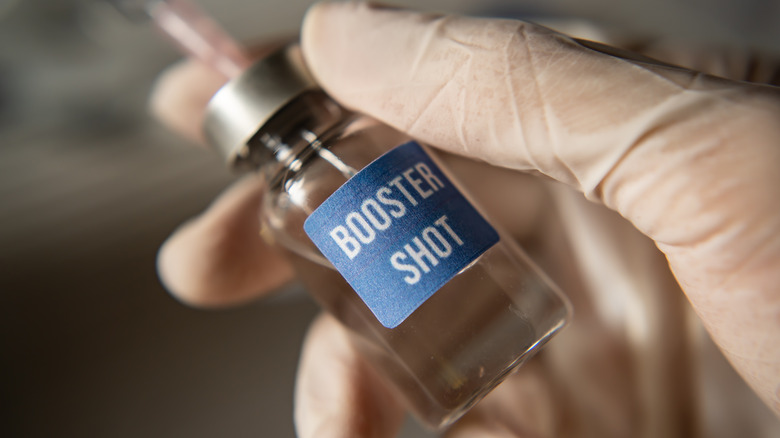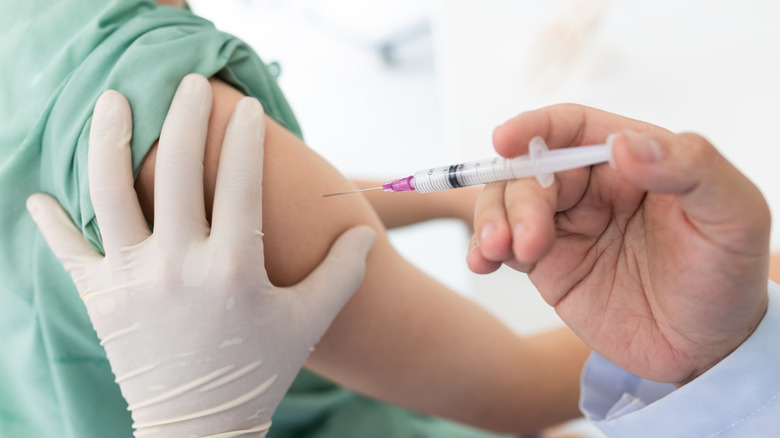What Happens If You Get Your COVID-19 Booster Too Soon?
Due to COVID-19 vaccines' waning effectiveness over time, the U.S. Centers for Disease Control and Prevention (CDC) recommends booster shots to all adult Johnson & Johnson recipients, as well as Pfizer and Moderna recipients who are at least 65, have underlying medical conditions or live or work in high-risk settings. The public seems to be responding without hesitation, with more people now coming in for booster shots than for their first dose, according to Time. A poll reported by Reuters found that 76% of fully vaccinated American adults want a booster shot.
Before you get in line for your own, keep in mind that the CDC recommends booster shots only for Johnson & Johnson recipients who received their first shot at least 2 months ago, and Pfizer and Moderna recipients who received their second dose at least 6 months ago. While it may be tempting to get your third dose over with sooner, these recommendations were developed with good reason.
Getting a booster shot too early may be risky and less effective
According to experts at the Mayo Clinic, there hasn't been enough data on people who get their booster shot sooner than recommended, so nobody really knows exactly what happens in this scenario.
However, experts raise some unpleasant possibilities. Dr. Melanie Swift of the Mayo Clinic says that although she believes it is unlikely, getting a booster shot early may amplify side effects. Dr. Jay Butler, deputy director for infectious diseases at the CDC, said in a press briefing in July that getting too many vaccine doses may actually lead to a muted immune response (per CNBC).
With all this in mind, your best bet is to follow the advice of professionals. According to Dr. Anthony Fauci, waiting the recommended amount of time may lead to a stronger immune response. It will also give enough time for your booster to cover any new variants that emerge (per the Harvard Medical School).


